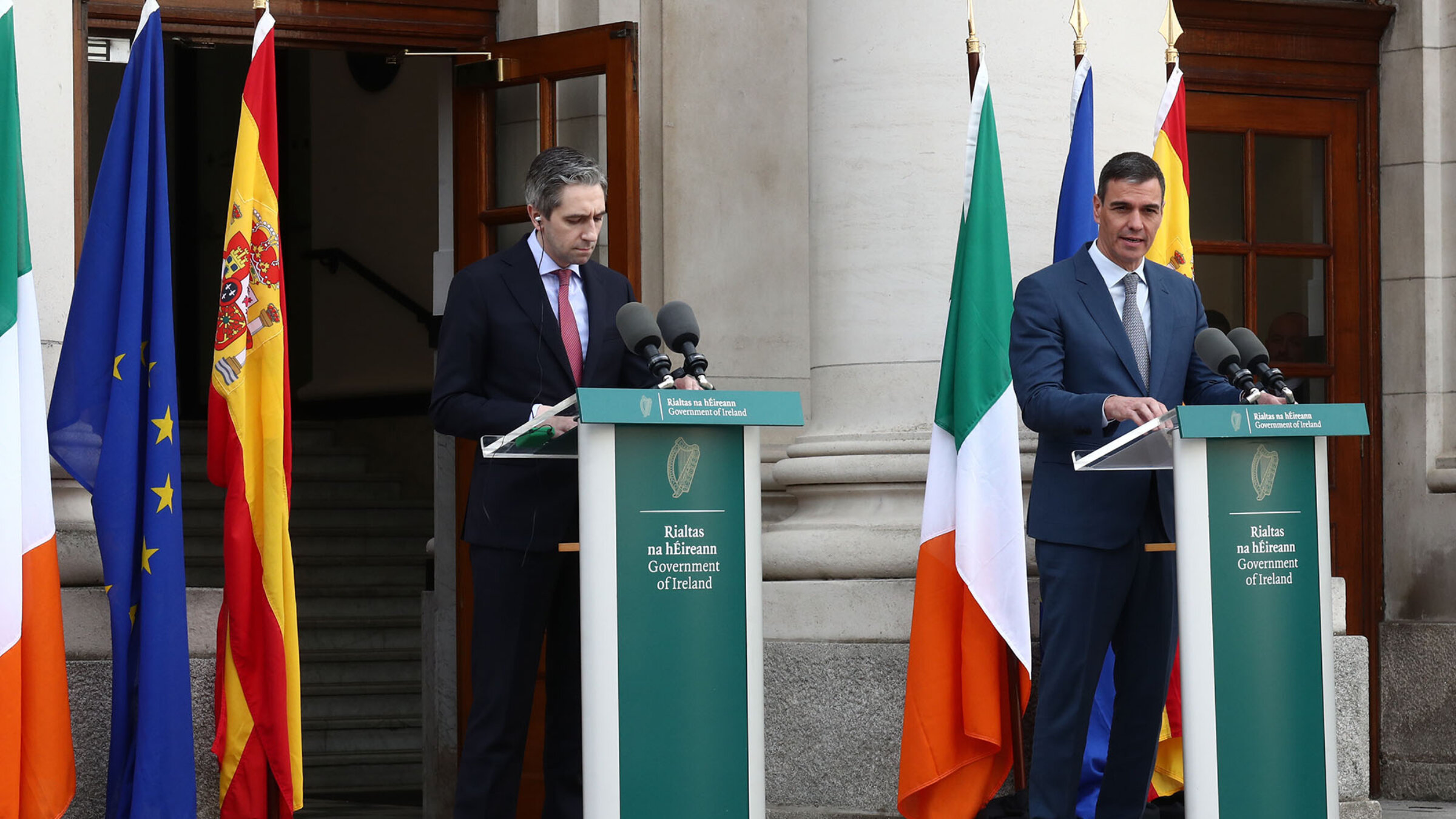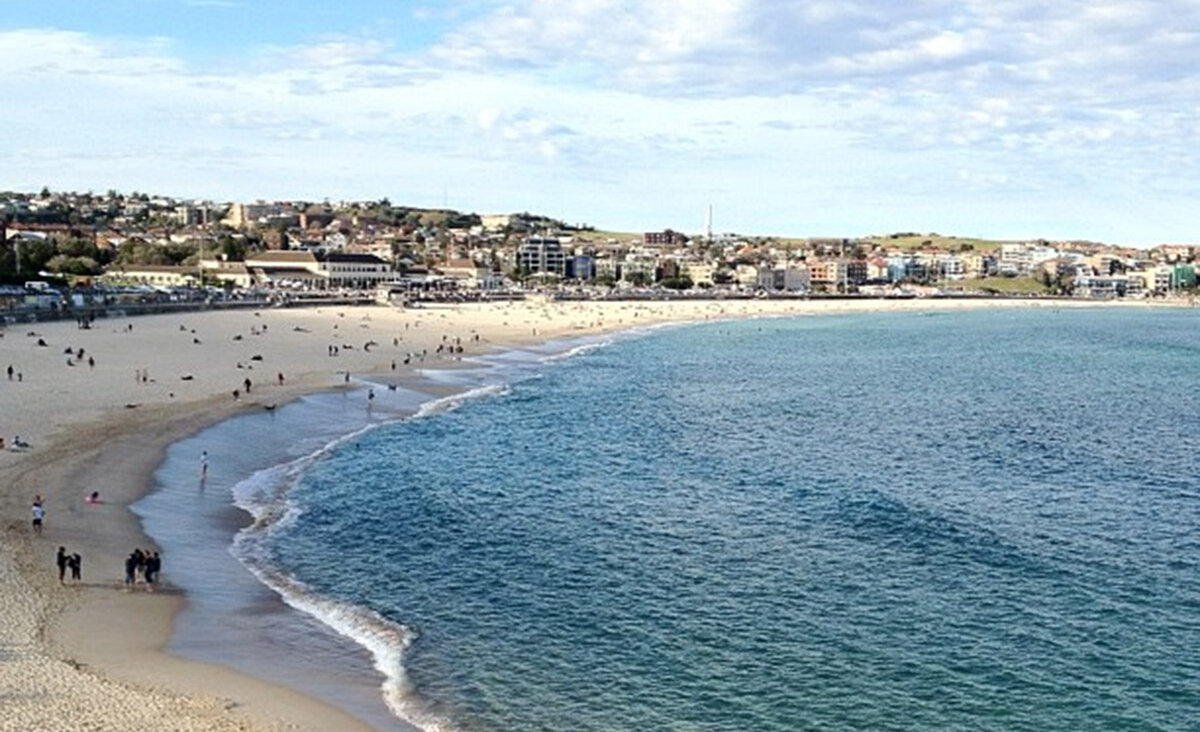Norway, Spain and Ireland will all recognize Palestinian state
Although 140 countries and the United Nations have already recognized Palestine, most Western European countries had not

Spanish President Pedro Sanchez (R) and Irish Prime Minister Simon Harris speak to the press after an April meeting in Dublin at which they expressed willingness to endorse a Palestinian state. Photo by Moncloa via Getty Images
(JTA) — Spain, Norway and Ireland said Wednesday they would formally recognize a Palestinian state, a sign of Israel’s challenges on the global stage.
The countries portrayed the step as an attempt to salvage long-dormant prospects for progress toward a two-state solution, creating a Palestinian state alongside Israel. Israel castigated the move as a reward for Hamas’ Oct. 7 attack, which launched the current war.
“Last month I stood on these same steps with Prime Minister Sanchez of Spain, and we said that the point of recognizing the state of Palestine was coming closer,” Irish Prime Minister Simon Harris said in Dublin Wednesday. “That point has now arrived.”
He said it was “an historic and important day for Ireland and Palestine,” adding that the recognition has come “because we believe in freedom and justice as the fundamental principles of international law and because we believe that permanent peace can only be secured on the basis of the free will of a free people.”
The three countries’ coordinated announcements on Wednesday underscore the degree to which the international community has lost patience with Israel amid its war against Hamas in Gaza, now in its eighth month.
Recognition of a Palestinian state is a symbolic step with no immediate material impact for Palestinians living in Gaza and the West Bank. But it represents a sharp rebuke to Israel, whose current government opposes Palestinian statehood and which has long held that a diplomatic resolution to the conflict should come only via negotiations.
Israel swiftly condemned the announcements and recalled its ambassadors from Ireland and Norway on Wednesday. Its far- right finance minister, Bezalel Smotrich, called for settlement expansion in the West Bank as well as the withholding of Palestinian tax revenue paid via Israel.
“Today’s decision sends a message to the Palestinians and the world: Terrorism pays,” said Israeli foreign minister Israel Katz.
Although 140 countries already recognize Palestine as a sovereign state, most Western European countries have avoided the move until now. Harris said he was “confident” that more countries would recognize Palestine in the coming weeks.
The office of Palestinian Authority President Mahmoud Abbas, who governs Palestinian population centers in the West Bank, welcomed the announcement. Abbas has made pushing for international recognition of Palestinian statehood a mainstay of his presidency, and has appealed to the United Nations and other bodies to advance it, over Israeli objections.
“The right of peoples to self-determination is an established right recognized under international law, and the State of Palestine renews its continuous call to countries that have not yet recognized the State of Palestine to stand up to their responsibilities and acknowledge the right of the Palestinian people to self-determination,” his office said in a statement, according to the Palestinian Wafa news agency.
Spain, Norway and Ireland all said their official recognition would go into effect on May 28. Norway was the first to make its announcement, carrying a particular symbolism because of its role in hosting the 1993 Oslo Accords, a framework for peace that placed Palestinian populatino centers under limited Palestinian rule but ultimately failed to end the decades-long conflict and the Israeli occupation of the West Bank and Gaza.
Jonas Gahr Støre, the prime minister of Norway, said recognizing an independent Palestine was necessary to end the conflict. He urged other countries to take the same step “so that the process towards a two-state solution finally can begin again.”
Harris also linked Ireland’s founding to the future of the Palestinians.
“From our own history we know what it means, recognition is an act of powerful political and symbolic value,” he said.
Spanish Prime Minister Pedro Sánchez, who has been harshly critical of Israel’s war in Gaza, pointed to Israel’s lack of a peace plan with the Palestinians as driving his decision, saying, “The two-state solution is in danger.” In April, Sanchez visited with both Harris and Støre as part of a European tour aiming to drum up support for recognizing Palestine; he also met with leaders in Belgium and Slovenia at the time.
Although the United States, a firm ally of Israel, has not unilaterally endorsed an independent Palestinian state, its official policy includes commitment to a two-state solution. No serious peace negotiations have taken place in more than a decade.
This article originally appeared on JTA.org.














